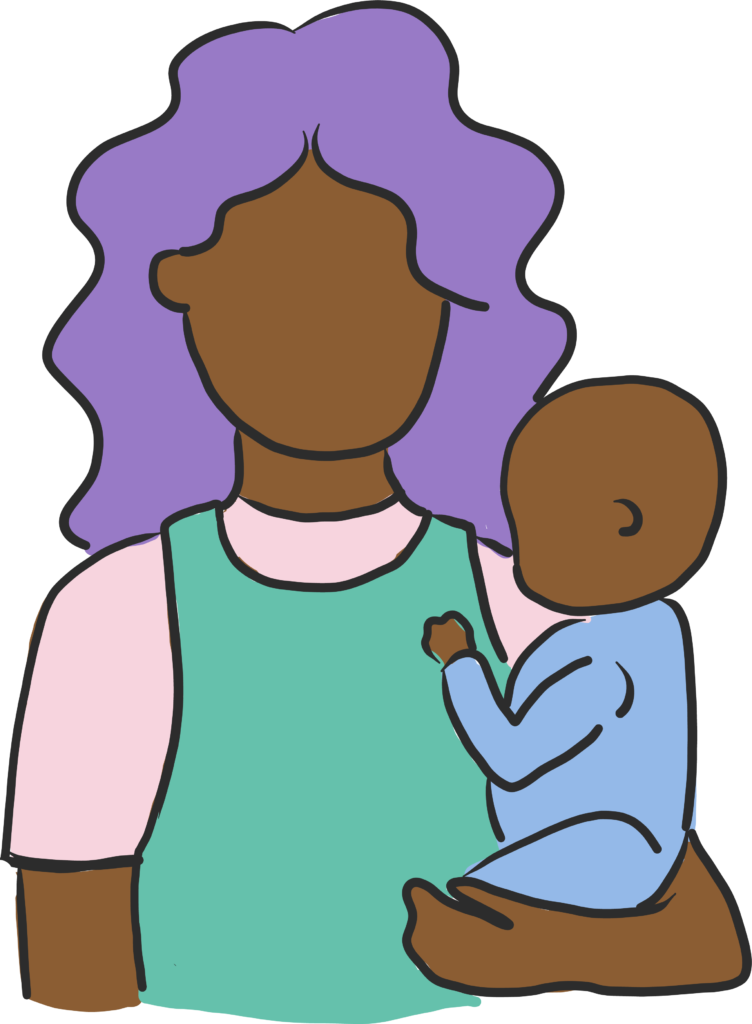
Talking to your midwife, GP or health visitor
Many women worry that they will be judged as a ‘bad parent’ which can stop them asking for the support that they need to feel well and bond with their baby.
You can talk to your midwife, GP or health visitor, at any stage, about how you’re feeling. They will ask you some questions to understand a bit more about what you’ve been experiencing and discuss what support is available to help you feel better.
Any health professional you speak to should treat you with respect and understanding. If you speak to someone and don’t feel that they understand, however, it’s OK to try speaking to another professional who makes you feel more comfortable.
You can find a wide range of support in the MindWell Directory:
Key support services include:
- Breastfeeding support – Breastfeeding support is available if you’re struggling, either in groups or you could get support from a breastfeeding counsellor.
- Children’s Centres – Based around the city offering support, advice and groups for local parents and parent-to-be.
- Forget Me Not Child – A dedicated service just for families whose baby has been diagnosed with a life-shortening condition.
- Home-Start – Confidential family support service with local volunteers helping families experiencing difficulties.
- Leeds Mental Wellbeing Service (LMWS) – LMWS is a city-wide service that provides support and psychological therapies for common mental health problems, such as anxiety, stress and depression for people aged 17 and over.
- Perinatal Mental Health Service (Women’s Counselling and Therapy Service) – A specialist service for women who are pregnant, or who’ve been pregnant in the last 12 months, or women who have or care for a child under 1 years old.
- The Teenage Pregnancy and Parenting Team – The team offers information and emotional support specifically for pregnant women under the age of 19.
Support for more serious mental health difficulties
If you’re experiencing more serious mental health problems, your midwife, health visitor and GP will work with you to decide which service is best placed to support you.
If you’re diagnosed with an issue like postnatal depression or any other mental health problem, it does not mean that your baby will be taken into care. Health professionals will do everything they can to support you to get better and to bond with your baby. if that’s something that you’re struggling with.
- The Infant Mental Health Team can help you if you’re struggling to bond with your baby. This service offers a variety of support to families around building a bond with the baby and you can ask your midwife, 0-19 Specialist Public Health Nurse (formerly know as a health visitor) or CAMHS practitioner to refer you to the service.
- The Leeds Specialist Perinatal Mental Health Team is a mental health service that supports some women with serious mental health problems in late pregnancy and in the baby’s 1st year. The service offers 24 hour in-patient care and support on the Yorkshire and Humber Mother and Baby Unit. The ward provides intensive care and support through a team of mental health nurses, psychiatrists and support workers. This is different from a general mental health ward as it means that the baby can stay on the ward with the mother rather than being separated.
Watch this video about inpatient care at the Yorkshire and Humber Mother and Baby Unit.
If you’re a new mum under the age of 18 and have serious mental health difficulties, you may be referred to the Child and Adolescent Mental Health Service (CAMHS). More information about emotional health support for young people is available at MindMate.
